Go(o)d radio can make a real difference in people’s lives, we’ve learned during a memorable gathering at the NAB Radio Show in Nashville, earlier this year.
After a day of typical conference panels, there was an intimate s’mores & storytelling session on the pool deck at the roof of Music City’s Omni Hotel. While roasting marshmallows on a fireplace, right beside the gorgeous swimming pool with a high balcony overlooking Nashville city, me and other attendees listened to radio personalities sharing what drove them into the business, and how they create successful personality radio. “When all is said and done, it’s not about us.”
“I’m nothing more than an aggregate of all of the smart people I’ve been lucky enough to meet”
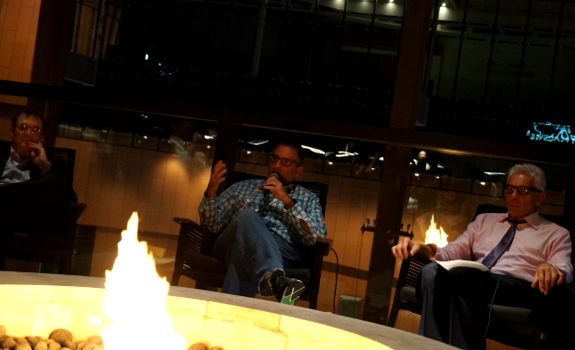
Talent coach Steve Reynolds, sitting in between radio host Dawson McAllister and Cumulus SVP/Programming Mike McVay, shows appreciation for his mentors (image: Thomas Giger)
Build your self awareness
Former radio personality, former program director and current talent coach Steve Reynolds loves radio because it’s intimate. “It is the only medium where it’s ‘me’ and ‘you’, while it’s actually thousands of listeners, and I was fascinated by that.” Then he got to attend focus groups, where average people shared their opinions about the “very successful show” that he was part of. “When someone in the focus group said something mildly negative about me, I was a basket case for three days. I was; probably still am, a typical talent. Driven by sometimes a lack of confidence, as I needed the gratitude of people applauding when they met me, figuratively or literally. I went to counselling for seven years to fix that. I think that I’m more wholehearted, and a talent coach in larger measure, because I have managed to get past that stage of needing the accolade to get to the next moment. I realised: listeners are always right. Our show got better, because I was bold enough to be vulnerable, and watch what average people had to say about our program; good and bad.”
Expand your radio experience
As he desired some programming experience, he got himself hired as a PD for Capital Broadcasting in his hometown of Raleigh, North Carolina. “A general manager, the best one I’ve ever worked with, took a gamble on me. Maybe I was a C+ as a program director, but I got it on the resume. Then, a gentleman by the name of Jon Coleman looked at me and said: teach a bunch of program directors, that I do research for, how to do a morning show.” Reynolds shares that if he weren’t in radio, he would probably be in education. “I just like to motivate and teach people.” Coleman’s suggestion to start his own company, specialised in coaching on-air talents, got him on the path of building radio personalities all over the US. He has no problem admitting that he had seven years of counselling to work on his personal issues. “Discomfort is the only manner in which you grow in life.” He also likes to be grateful towards people who have contributed to this development. “I’m nothing more than an aggregate of all of the smart people I’ve been lucky enough to meet.”
Serve your listeners first
Christian motivational speaker and radio personality Dawson McAllister is broadcasting for young people all over the US, every day. His 3 nationwide syndicated talk shows are Dawson McAllister Late Nights (weekdays), TheHopeLine (Saturdays, designed for Christian stations), and Dawson McAllister Live (Sundays, designed for CHR, and co-hosted by Jessica McVay, daughter of Cumulus radio executive Mike McVay). After being on air, callers can continue to talk off air with a coach, who may guide them to specialised councillors. “I’ve always wanted to help people”, McAllister says to tonight’s live audience, which includes many radio talents and broadcasting students. “Our audience doesn’t care how we think about ourselves. They like to know how we can help them deal with issues that they face.” He says that last month alone, they got over 1000 calls of suicidal teens. “One thousand, two hundred students from across America saying: please, help me live! Can you believe that? Out there, in our audience, are people looking for a father or a friend they’ve never had.”
“Reach out and touch people who have needs”
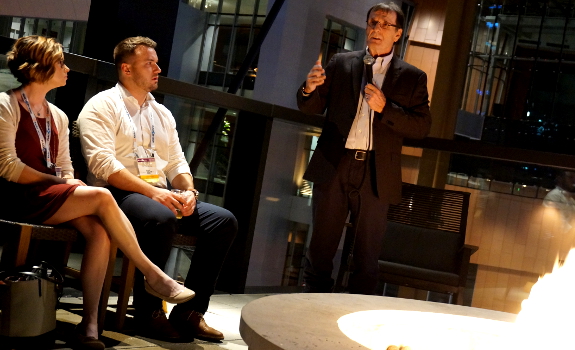
Dawson McAllister’s philosophy is serving your audience; not your ego (image: Thomas Giger)
Leverage your medium’s impact
Dawson McAllister started as a motivational speaker, doing weekend conferences for what he estimates to be 85.000 to 90.000 students a year, and started to notice that many of these young people had issues. “I’ll never forget, one night, in a crowd of a thousand students, unannounced, this girl walks up the stage, and gives me a note. I put it behind me, as I didn’t really knew what to do with it. She went back, sat down, and I said: thank you. Then, up comes another, and then another, and then another… I don’t know where they got the idea to come up and give me notes. During the break, I’ve looked at the notes, and they were all about family, relationships, heartache, and all that stuff.” He says the same thing happened over and over again, in the cities where he spoke next. “We had to put big boxes at the bottom of the stage, saying: ‘please put your notes in the boxes’. This went on for four, five conferences. So I said: I want to do more than ‘blow in, blow up and blow out’. I want to be more than a ‘one-weekend wonder’. I want to talk to these kids every week, and I want to do soul talk with them.”
Sense your caller’s feelings
As it often happens when you have a goal in your mind, the opportunity just presented itself. A Christian station in Saint Paul, Minnesota approached McAllister to host a radio show for kids and their parents on Saturday night. He said yes, on one condition: that the program would be aired on Sunday night instead, even if that’s usually a low-ratings time slot for radio. He decided to “follow the dream”, believing that they would build the show over time, while he could continue his weekend lectures. Dawson McAllister Live went on to be syndicated on over 140 stations, reaching over 1 million listeners a week (source: Wikipedia). One night, a girl called in. He noticed her flat voice. “When you do a talk show, you’ve got to listen to the tone of voice. I knew she was angry; I knew she was hurt, and said: tell me your story.” It turned out she had been sexually violated by several men. “I said: why aren’t you crying? She said: because if I started, I’d never stop. I said: you know, I’m grateful to you. There are so many guys who have misused you, but you trust me. She said: listen, Dawson. I don’t trust you. I don’t trust any men.” As the hour was about to end, he wondered how he could help her.
Uplift your audience’s state
“I said: I’ve got an idea. We’ve got to take a 10-minute break before the second hour. I’m calling on truckers to call me right now, and tell me how they feel about you and your situation. We were bombed with calls during that break. The first we got on air was actually a cop. He said: I have a daughter of your age, and I would never do something like that to you. I want you to know that you are loved by more people than you think.” Next, many truckers came on, saying they were not all bad, and that many guys really cared about her. “Then, I said to a trucker: hold your cell phone out of the window and [honk the horn to] give a big cheer!” It was followed by many callers that night. “We called the girl the next day, and told her what happened. And she said: this is where my healing begins.” While mentioning that not every broadcaster has to be a Dawson McAllister or Billy Graham, he reminds us that “when all is said and done, it’s not about us. We’re the ones who reach out and touch people who have needs. There are many creative ways allowing you to up your share by saying you care, and living it.”
Read also: part 2
Header images: Thomas Giger

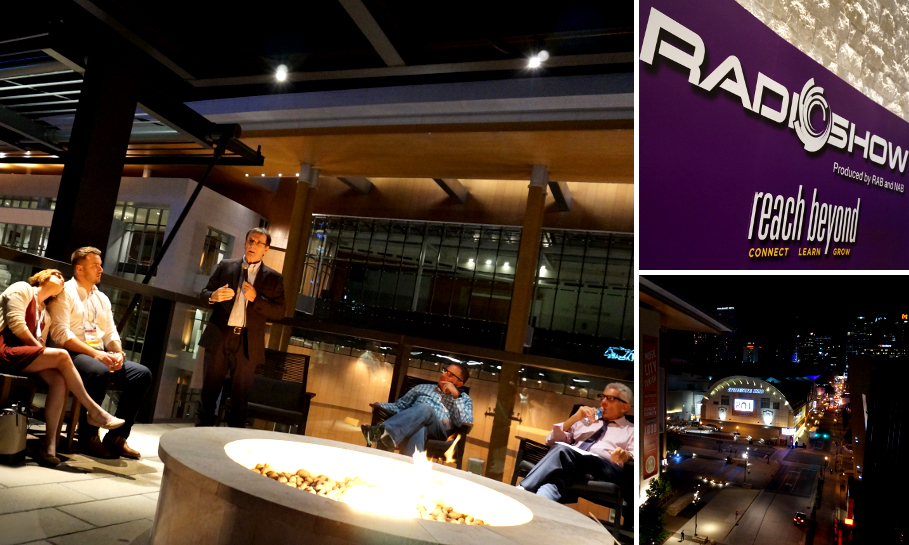
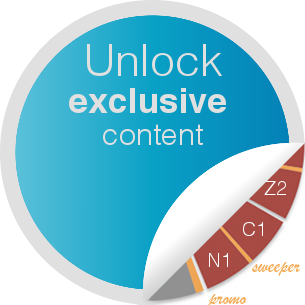


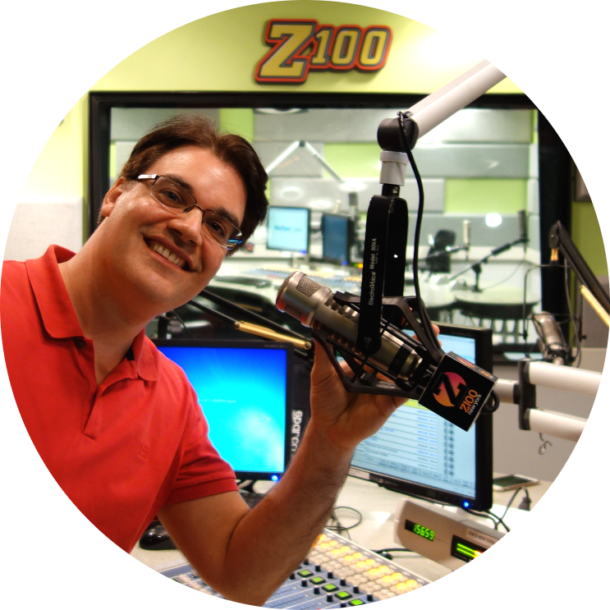
Add Your Comment